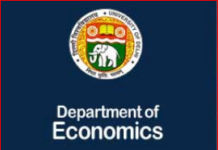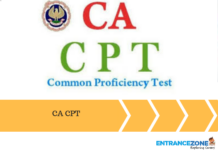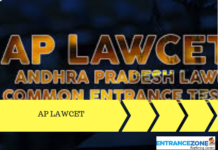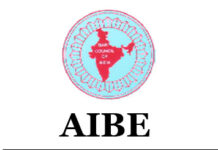CBSE and ICSE are the two most popular school boards in India. Both boards have their own strengths and weaknesses, so it is important to consider your child’s individual needs and goals when choosing a board. When considering educational boards in India, CBSE (Central Board of Secondary Education) and ICSE (Indian Certificate of Secondary Education) stand as two prominent choices. CBSE, established in 1929, boasts a widespread presence with around 28,573 affiliated schools. With a pass percentage of approximately 88.15%, CBSE educates a significant student population of around 3.12 crores. Known for a curriculum slightly less rigorous, CBSE places emphasis on science and mathematics subjects and offers relatively easier access to top colleges in India. On the other hand, ICSE, founded in 1958, maintains a more select group of around 2,500 affiliated schools. It boasts a higher pass percentage of about 94.75% among its approximately 1.06 crores of students.
Admission Open 2023
- Top University & Colleges Official Links, Application & Scholarship Forms.
| Criteria | CBSE | ICSE |
|---|---|---|
| Syllabus | Less rigorous | More rigorous |
| Focus | Science and mathematics | English language, humanities, and the arts |
| International recognition | Less | More |
| Number of schools offering curriculum | More | Fewer |
| Difficulty of getting into top colleges in India | Easier | More difficult |
| Establishment year | 1929 | 1958 |
| Number of schools | 28,573 | 2,500 |
| Pass percentage | 88.15% | 94.75% |
| Number of students | 3.12 crores | 1.06 crores |
Which is better for the future?
There is no one-size-fits-all answer to this question. The best board for your child will depend on their individual goals and interests. If your child is interested in pursuing a career in science or engineering, then CBSE may be a better choice. If your child is interested in studying abroad or pursuing a career in the humanities, then ICSE may be a better choice.
Ultimately, the best way to decide which board is right for your child is to talk to them about their goals and interests. You should also visit schools that offer both CBSE and ICSE curriculum and see which one you think would be a better fit for your child.
Subscribe to Get Updated Information about CBSE or ICSE Which is Better for Future: ICSE vs CBSE, Key differences - Admissions
Here are some additional factors to consider when choosing a school board:
- The school’s reputation: Do you know other parents who have sent their children to this school? What were their experiences?
- The school’s location: Is the school located in a convenient location for you and your child?
- The school’s facilities: Does the school have the facilities that are important to you, such as a good library, sports facilities, or computer labs?
- The school’s teaching methods: What teaching methods does the school use? Do you think they would be a good fit for your child?
ICSE vs CBSE: What is the Difference Between Them
| Feature | CBSE | ICSE |
|---|---|---|
| Curriculum Focus | Science and Mathematics | Balanced approach, including Humanities and Languages |
| Exam Pattern | Objective-based | Subjective-based |
| Learning Style | Rote learning and problem-solving | Analytical and critical thinking |
| Future Focus | Competitive exams like JEE, NEET | Diverse career paths, including international studies |
| Syllabus | More focused and direct | Broader and more detailed |
| Exam Difficulty | Generally considered easier | Generally considered more challenging |
| Recognition | Nationally recognized | Nationally and internationally recognized |
| Aspect | ICSE Board | CBSE Board |
|---|---|---|
| Full Form | Indian Certificate of Secondary Education | Central Board of Secondary Education |
| Curriculum | Emphasizes in-depth knowledge and practical skills | Focuses on a more theoretical approach |
| Language | English is the primary medium of instruction | Multilingual; English is the medium in most schools |
| Syllabus | More comprehensive and vast syllabus | More compact syllabus, focuses on core subjects |
| Examinations | Emphasis on application-based questions | Balanced mix of objective and theoretical questions |
| Assessment | Continuous and comprehensive evaluation (CCE) | Continuous and comprehensive evaluation (CCE) |
| Grading System | Percentage grading system | Both percentage and CGPA grading |
| National/International | Primarily recognized within India | Recognized both nationally and internationally |
| Difficulty Level | Generally considered more challenging | Relatively less challenging |
| Focus | Emphasizes overall development and analytical skills | Focuses on theoretical knowledge and examination skills |
| Availability of Study Material | Fewer study resources available | Abundance of study materials and resources available |
CBSE or ICSE which is better for NEET
which is better for medical preparation
- Both ICSE and CBSE are recognized by medical colleges in India.
- CBSE is preferred by NEET aspirants due to its syllabus alignment with the NEET exam.
- NEET, a medical entrance exam, is based on the CBSE curriculum.
- CBSE has a larger number of schools and students participating in the NEET exam.
- This prevalence gives CBSE students an advantage in terms of familiarity with the exam pattern and content.
- ICSE students may need to bridge the curriculum gap to excel in NEET compared to their CBSE counterparts.
CBSE or ICSE which is better for JEE Main
Which is better for engineering admission preparation
| Criteria | CBSE | ICSE |
|---|---|---|
| Pros | ||
| JEE Main Alignment | Aligned syllabus with JEE Main | Comprehensive and in-depth syllabus |
| Widely Accepted | Accepted by most engineering colleges | Strong English language skills |
| Ample Study Material | Abundant resources available | Application-based learning |
| Consistency | Uniform curriculum structure | Practical and real-world application emphasis |
| Cons | ||
| Rote Learning | Some focus on memorization | Potential coverage of non-JEE Main topics |
| Limited Practical Exposure | Fewer practical components | Potential need for supplementary study material |
ISC vs CBSE: Which is More Challenging
Achieving high scores in ISC is quite achievable. Up until 10th grade, ICSE tends to be more demanding than CBSE, but from 11th and 12th grades, both are fairly similar in difficulty level. While there’s a variation in the exam difficulty, ISC’s Mathematics paper is considered easier compared to CBSE’s, whereas the situation is reversed when it comes to Chemistry.
ICSE vs. CBSE: A Glimpse
To make it easy for parents and students to make their choice, here is the difference between the ICSE board and the CBSE board at a glance
| Advantages of the ICSE Board | Advantages of the CBSE Board |
|---|---|
| 1. Comprehensive Curriculum: Provides a well-rounded education with a variety of subjects and extracurricular activities. | 1. Standardised Curriculum: Offers a consistent syllabus nationwide for uniform education. |
| 2. Wide Range of Educational Opportunities: Offers diverse subjects and courses, allowing students to choose based on interests and career goals. | 2. Emphasis on Practical Learning: Focuses on practical knowledge and problem-solving skills. |
| 3. Focus on Critical Thinking: Emphasizes critical thinking and problem-solving skills, encouraging independence and creativity. | 3. Recognition: Widely accepted by most universities in India. |
| 4. Recognition: Accepted by universities in India and abroad, with high rankings like QS I-GAUGE Platinum for schools like WWS. | 4. Accessibility: CBSE schools are widely available, providing more options for students. |
| Disadvantages of the ICSE Board | Disadvantages of the CBSE Board |
|---|---|
| 1. Higher Difficulty Level: Generally tougher than other Indian boards, posing a challenge for some students. | 1. Limited Focus: Primarily concentrated on science and mathematics, potentially restricting subject choices. |
| 2. Limited Availability: Less widespread compared to CBSE, potentially limiting students’ choices. | 2. Rote Learning: Assessment pattern may promote memorization over deeper understanding. |
In Summary
Deciding between the CBSE and ICSE boards hinges on a student’s academic objectives, learning approach, and future ambitions. CBSE schools gear students towards competitive exams, while ICSE schools provide a broader and varied curriculum. It’s noteworthy that CBSE leans towards memorization, while ICSE places importance on critical thinking and tackling challenges.
Students and parents should thoroughly assess these considerations when selecting a board, making a well-informed choice that aligns with the student’s individual requirements and aspirations.
10 FAQ on ICSE vs CBSE:
- What are the two most popular school boards in India?
The two most popular school boards in India are the Indian Certificate of Secondary Education (ICSE) and the Central Board of Secondary Education (CBSE).
- What are the main differences between ICSE and CBSE?
The main differences between ICSE and CBSE are:
- Syllabus: The ICSE syllabus is more rigorous than the CBSE syllabus.
- Focus: The ICSE curriculum focuses more on English language skills, humanities, and the arts, while the CBSE curriculum focuses more on science and mathematics.
- International recognition: The ICSE curriculum is more internationally recognized than the CBSE curriculum.
- Number of schools offering curriculum: There are fewer schools that offer the ICSE curriculum than the CBSE curriculum.
- Difficulty of getting into top colleges in India: It is more difficult to get into top colleges in India if you have studied under the ICSE curriculum than if you have studied under the CBSE curriculum.
- Which board is better for me?
The best board for you will depend on your individual needs and goals. If you are interested in pursuing a career in science or engineering, then the CBSE curriculum may be a better choice for you. If you are interested in studying abroad or pursuing a career in the humanities, then the ICSE curriculum may be a better choice for you.
- What are the advantages of studying under the ICSE curriculum?
The advantages of studying under the ICSE curriculum include:
- A more rigorous syllabus that will challenge you and prepare you for college and beyond.
- A focus on English language skills, which are essential for success in today’s globalized world.
- A curriculum that is more internationally recognized, which can open up opportunities for you to study or work abroad.
- What are the disadvantages of studying under the ICSE curriculum?
The disadvantages of studying under the ICSE curriculum include:
- The syllabus is more rigorous, which can be demanding for some students.
- There are fewer schools that offer the ICSE curriculum, so you may have to travel further to attend a school that offers this curriculum.
- It may be more difficult to get into top colleges in India if you have studied under the ICSE curriculum.
- What are the advantages of studying under the CBSE curriculum?
The advantages of studying under the CBSE curriculum include:
- A more flexible curriculum that allows you to choose the subjects that you are most interested in.
- A focus on science and mathematics, which are essential for many careers.
- A curriculum that is more widely offered, so you will have more schools to choose from.
- What are the disadvantages of studying under the CBSE curriculum?
The disadvantages of studying under the CBSE curriculum include:
- The syllabus is less rigorous than the ICSE syllabus, which may not be challenging enough for some students.
- The curriculum is not as internationally recognized as the ICSE curriculum, which can limit your opportunities to study or work abroad.
- What are the eligibility criteria for the ICSE and CBSE exams?
The eligibility criteria for the ICSE and CBSE exams are:
- You must have completed your Class 10 education.
- You must have passed the qualifying exam for the board that you are interested in.
- How do I apply for the ICSE and CBSE exams?
You can apply for the ICSE and CBSE exams through the respective boards’ websites. The application process is usually simple and straightforward.
- When are the ICSE and CBSE exams held?
The ICSE and CBSE exams are held in April/May of each year. The exact dates of the exams are announced by the respective boards in advance.













